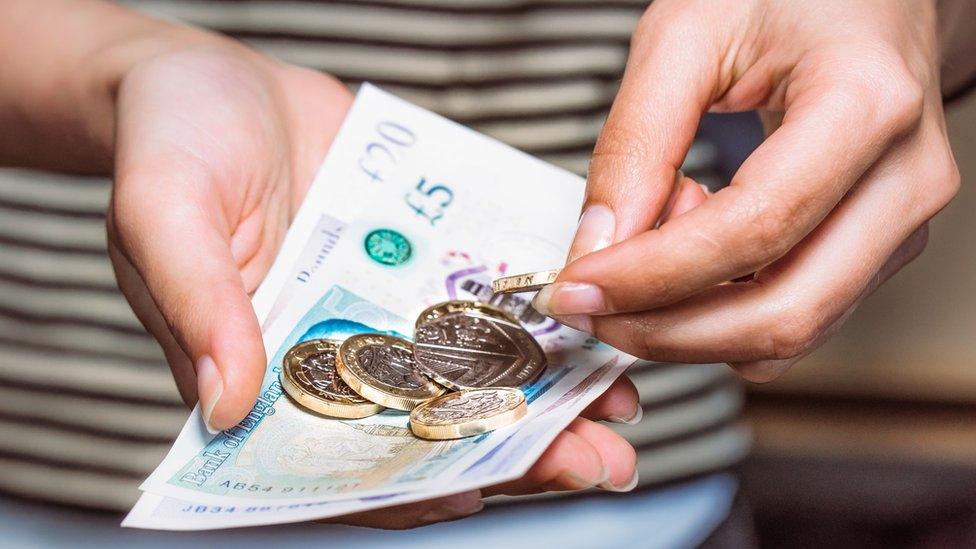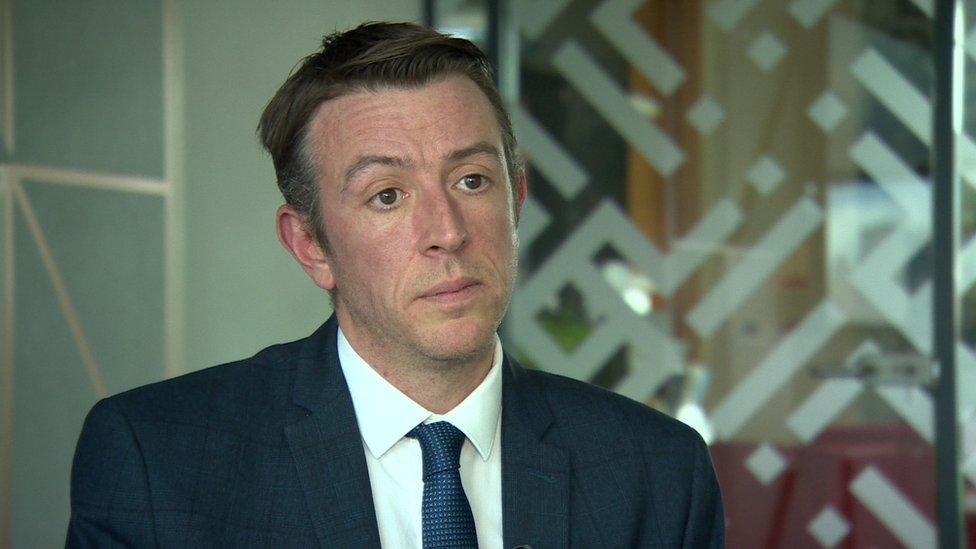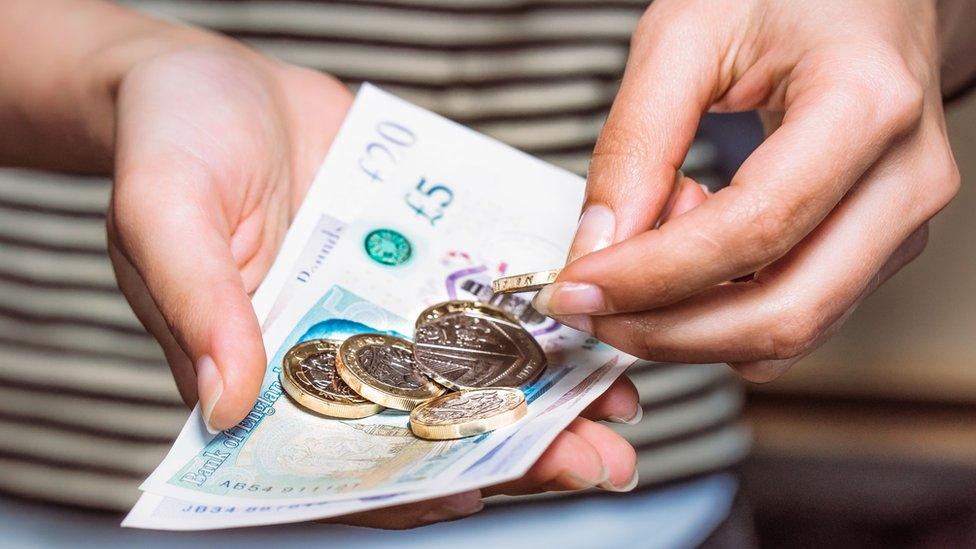Business rates: Bills could fall for NI hotels, pubs and shops
- Published
- comments

Hospitality businesses may benefit from business rates revaluations
Business rates revaluation could mean a fall in bills for many hotels, pubs and shops across Northern Ireland.
Many such businesses will have their rates reduced from April because of a revaluation exercise.
However industrial warehouses, offices and manufacturers could face higher bills.
Almost 75,000 non-domestic properties including shops, offices and factories, hotels and pubs have been revalued for the first time since 2020.
This is the shortest time between revaluations ever delivered in any UK jurisdiction.
It is a response to calls by businesses in Northern Ireland for more frequent revaluations to reflect changing market values.
This will not change the amount of money which is generated by rates, rather it is designed to ensure the system is fair.
One example of how these changes would work in practice is the Europa Hotel in Belfast, which has seen a 30% fall in rateable value since 2020.
In contrast, Musgrave Cash & Carry in Belfast has seen an increase of 74.5% in rateable value.

It is the first revaluation since 2020
Two thirds of properties will see no change or a decrease in their rateable value.
Many hospitality businesses will see values going down.
There is a broad decrease in the value of pubs of 15% across Northern Ireland, with Belfast seeing a 2% decrease and outside Belfast showing a 22% decrease.
Hotels are generally seeing a decrease of 24% on average across Northern Ireland.
The value of retail property is down on many high streets, while smaller supermarkets are generally up which means the overall change in retail is a decrease of 4% on the 2020 values.
The office sector across Northern Ireland shows an overall increase in rateable value of 10%.
Warehouse and storage property is up by 12% - 20% in Belfast and outside Belfast by 9%.
Manufacturing property is up by 11% across Northern Ireland.
Renewable energy assets are seeing an increase of, on average, 70% across Northern Ireland.
The commissioner of valuation at Land & Property Services (LPS), Angela McGrath, said: "The revaluation means that from April, ratepayers will contribute to the funding of essential public services such as health, education and infrastructure as well as a wide range of council services relative to their 2021 rental value, instead of 2018 values as at present.
"I would encourage business ratepayers to go online and view the new draft values for their properties ahead of rate bills issuing in the spring."
A fall in the rateable value of a property doesn't necessarily translate into a decrease in their bill as it will also depend on the district rate set by councils and the regional rate which is normally set by Stormont and in its absence will be set by the Northern Ireland secretary.

Mark Elliott from CBRE said while some businesses could see a reduction, others might see bills go up
Mark Elliott, head of professional services at property agent CBRE, said there are positives in the reductions being shown, particularly in hospitality.
However, he explained: "The second part of this process is in February when councils and Stormont release what we call the rate poundage which is used to calculate your rates bill."
"Indications are that those are going to go up, by 15-20% in some cases, so whilst you might be getting a 10% reduction in your valuation, if there's a 15 or 20% increase in your poundage then your rates bill might not even go down, it could actually go up," he added.
Related topics
- Published2 March 2022

- Published5 November 2021
